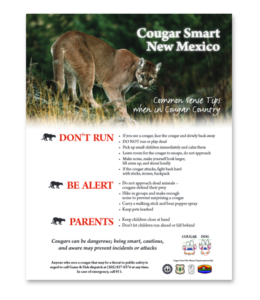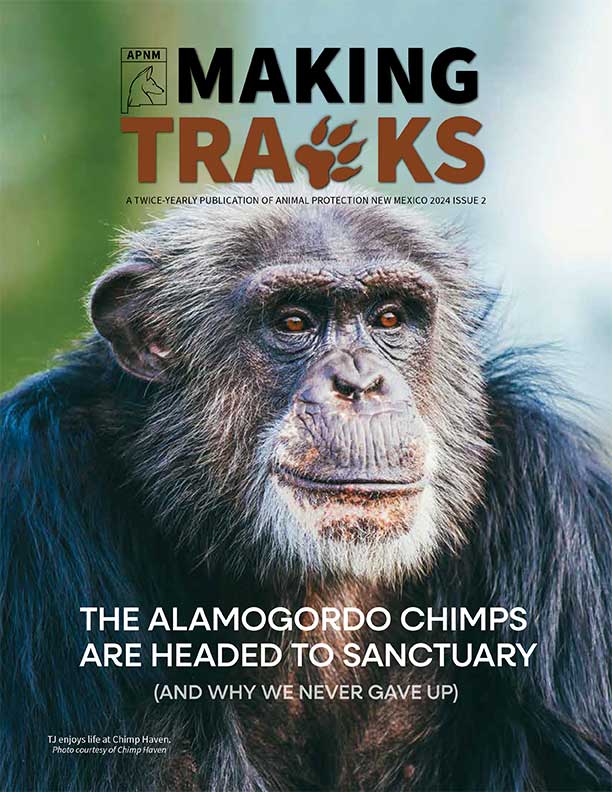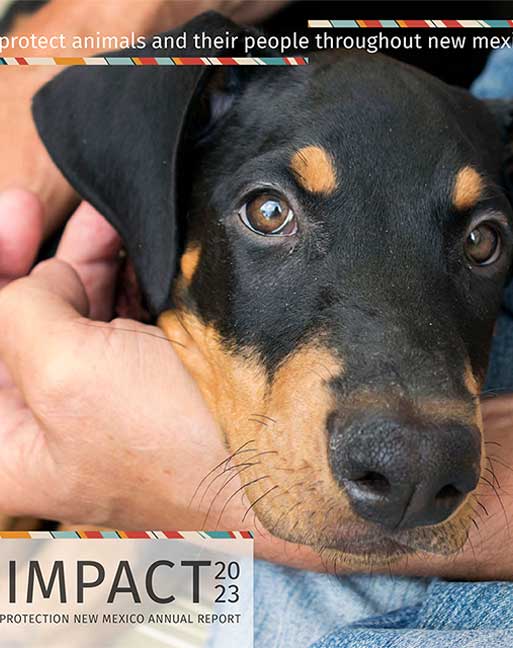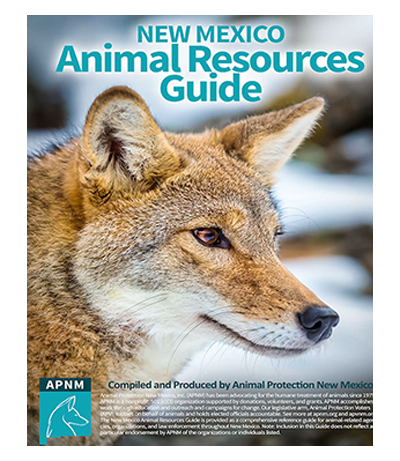
Cougars (also called mountain lions, pumas, panthers, and catamounts) are one of the top native carnivores in New Mexico and help maintain the health of the landscape by keeping in check the grazing wildlife population. This relationship between cougars and deer, for instance, has evolved over millennia, helping to ensure that the land can sustain the wildlife living on it.
The main prey of cougars is deer, and cougar numbers are higher in areas where there are more deer. Cougars also eat elk, bighorn sheep, javelina, raccoons, squirrels, birds, and other small animals.
Cougar attacks on people are extraordinarily rare. According to U.S. Health and Human Services, more people are killed by lightning in New Mexico than are attacked by cougars. And even livestock attacks are relatively rare: according to New Mexico sheep growers, more domestic sheep are killed by the weather than by mountain lions.
But common sense precautions should be taken when sharing the land with cougars.
Here are some tips to avoid conflicts with cougars:
- Mountain lions hunt at dawn and dusk, which is the time when people need to be most aware of cougars.
- Homeowners living in cougar country should eliminate hiding places for lions around their property, such as dense vegetation near the house—especially in children’s’ play areas. Put children’s’ play areas where they can be supervised from inside the house.
- Consider fencing play areas—cougars are deterred by high fencing (10 feet).
- Avoid having children play outside at dawn or dusk. Children under 16 that are not accompanied by an adult are more likely to attract cougar attention.
- Homeowners should not attract deer. Plant only native foliage. Deer-proof fences around the home are a good idea.
- Motion-detector lights are a good idea—cougars avoid lights.
- It is best not to travel alone, especially at dawn or dusk. Trail runners and mountain bikers should run/ride with others. Carry a hiking stick.
- Do not allow pets to roam at night. In cougar country, keep pets on a leash and securely confined at night (either inside or in a run that has a roof).
- Keep livestock in closed barns at night. Corralling livestock at night is a good idea, but make sure the animals can be seen from the home. Corrals keep livestock from wandering but also can trap livestock if a cougar enters the pen.
- Large guard dogs (70 pounds or more) may be effective in deterring cougars.
- Patrol the perimeter of your property with a friend, flashlight, and dogs at odd hours at night. Cougars like routine, and if you disturb their routine near your property, they will avoid it in the future.
- If you encounter a cougar keep eye contact and move backwards slowly. DO NOT RUN. Raise your arms over your head to appear larger. If you’re wearing a jacket, grab the corners and lift over your back (like wings) to appear larger. Yell. Throw rocks or sticks. Be very aggressive, never submissive.




